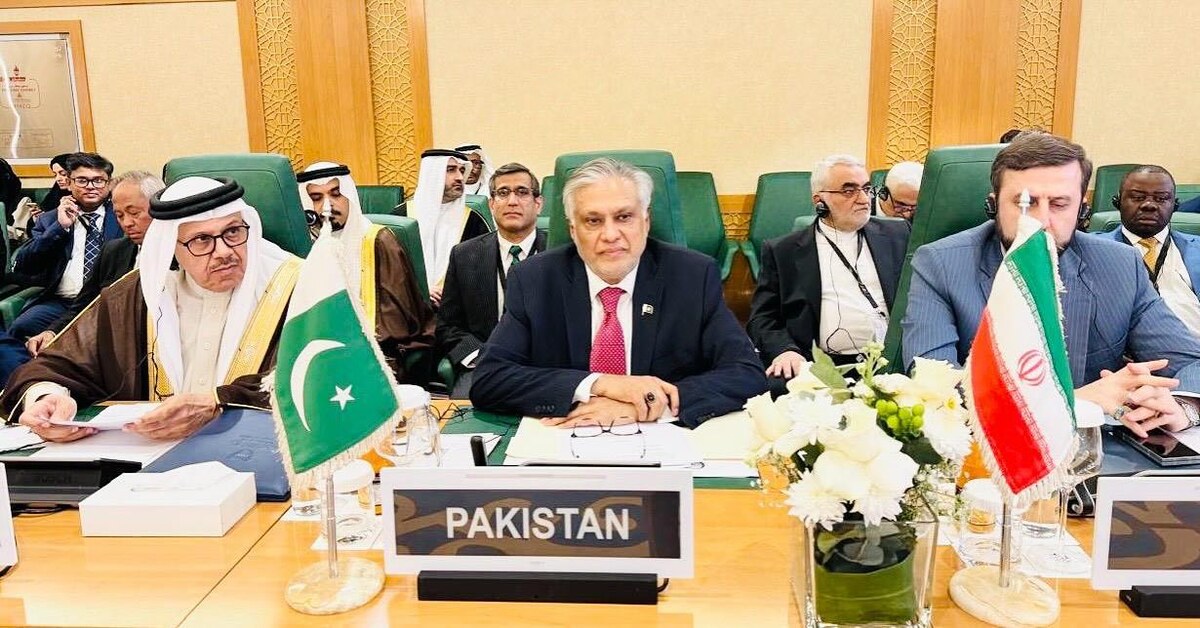ISLAMABAD: Pakistan’s Deputy Prime Minister Ishaq Dar on Saturday condemned plans to forcibly relocate Palestinians from their homeland, labeling such actions a “red line” and urging the Organization of Islamic Cooperation (OIC) to take decisive measures to hold Israel accountable for its actions in Gaza and the West Bank.
Dar, who also serves as the country‚Äôs foreign minister, is currently in ∫£Ω«÷±≤•, having arrived on Thursday to participate in the OIC foreign ministers‚Äô session on Palestine held in the port city of Jeddah.
The session was convened in response to US President Donald Trump’s proposal to permanently displace over 2 million Palestinians from Gaza, with plans to transform the area into an international beach resort.
This was widely condemned by majority-Muslim nations and international rights organizations, with Arab leaders endorsing an Egyptian-led reconstruction plan for Gaza, valued at $53 billion, which aims to prevent Palestinian displacement.
“The Muslim Ummah must make it unequivocally clear: any attempt to forcibly relocate the Palestinian people, whether from Gaza or the West Bank, is ethnic cleansing and a war crime under international law,” Dar asserted during his address at the OIC special session.
“The OIC must categorically reject any proposal that seeks to eject the Palestinians from their own homeland,” he added. “No external force has the right to dictate their future to the Palestinians. They must determine their own future, through an exercise of self-determination.”

This handout photo shows Pakistan Foreign Minister and Deputy Prime Minister Ishaq Dar (center) participating in the Organization of Islamic Cooperation foreign ministers‚Äô session on Palestine, in Jeddah, ∫£Ω«÷±≤• on March 8, 2025. (Photo courtesy: Handout/MOFA)
The Pakistani deputy prime minister emphasized that the notion of Palestinian displacement “must be recognized as a red line,” urging the OIC to collectively oppose and obstruct any such move.
“This is a defining moment for the Muslim Ummah,” he continued. “History will not judge us by our words but by our actions... The OIC must rise to this challenge with unity, resolve and purpose. Another Nakba cannot and must not be allowed to happen.”
Dar condemned Israel for obstructing humanitarian aid to Gaza and warned that sustainable peace cannot be achieved as long as Israeli military operations, settler violence and illegal land annexations persist.
He called for the revival of a credible and irreversible political process toward a two-state solution, leading to the establishment of an independent and sovereign Palestine.
“The OIC must mobilize its collective influence to press for the recognition of the state of Palestine as a full member of the United Nations,” he urged.
Dar also criticized Israeli Prime Minister Benjamin Netanyahu‚Äôs recent suggestion that a Palestinian state be established in ∫£Ω«÷±≤•.
‚ÄúThis is an insult to the entire Muslim Ummah,‚Äù he said. ‚ÄúPakistan expresses its full solidarity with the Kingdom of ∫£Ω«÷±≤• and commends its steadfast support for the Palestinian cause.‚Äù















